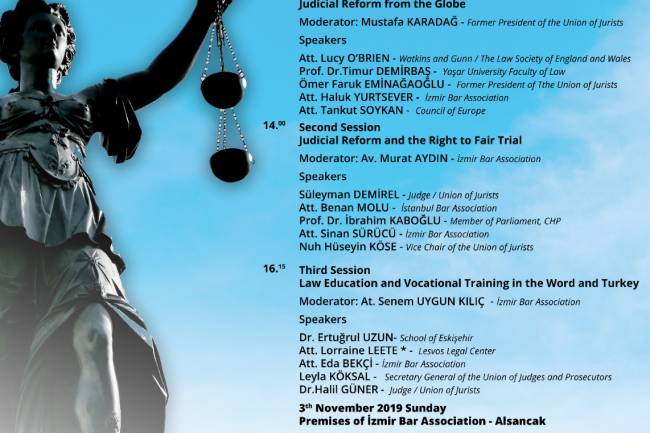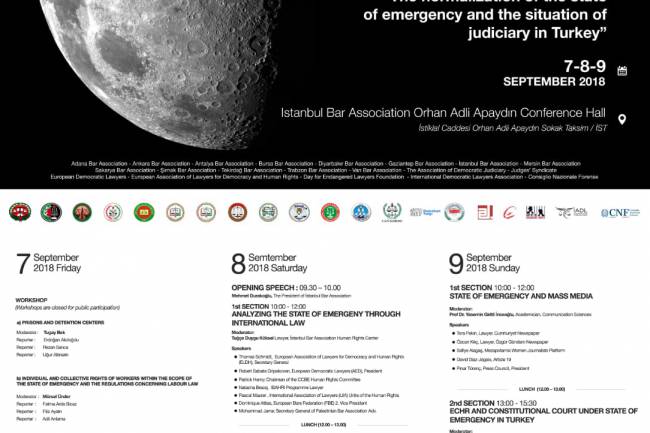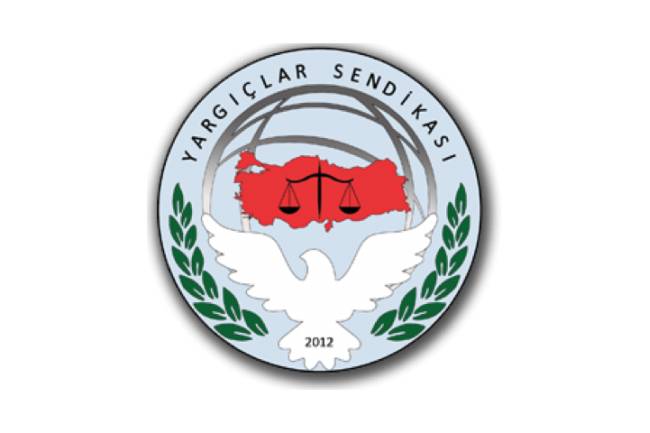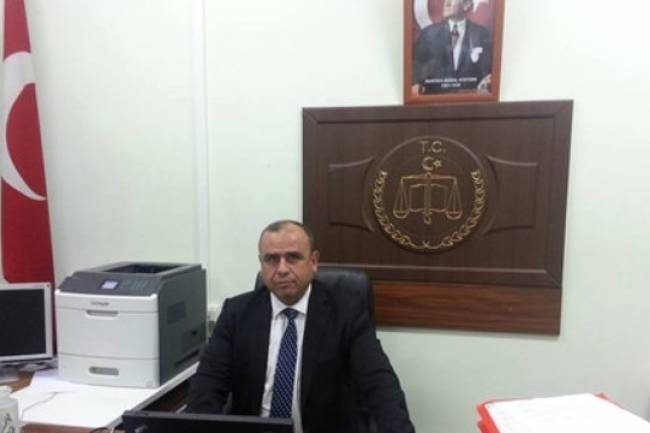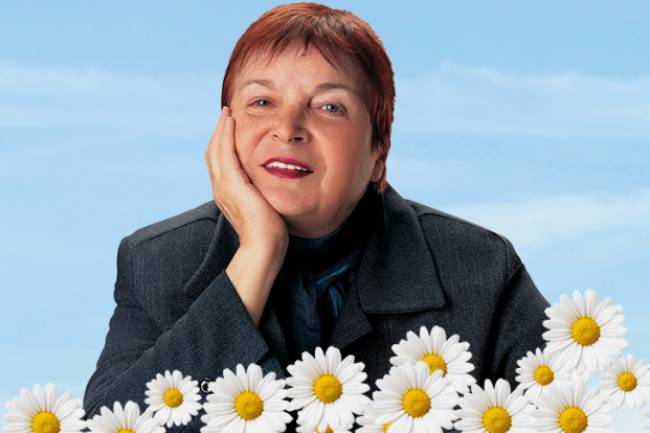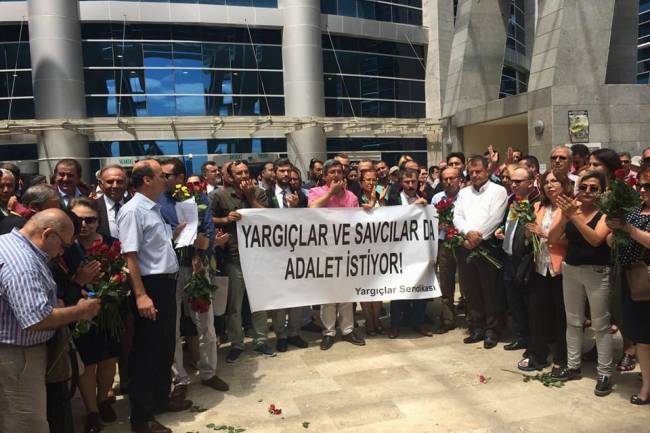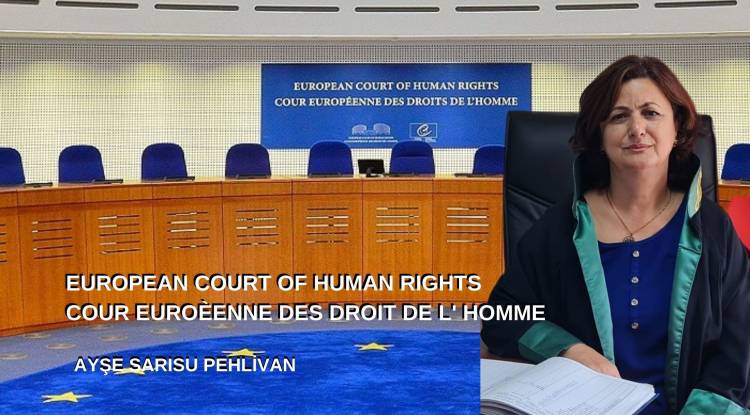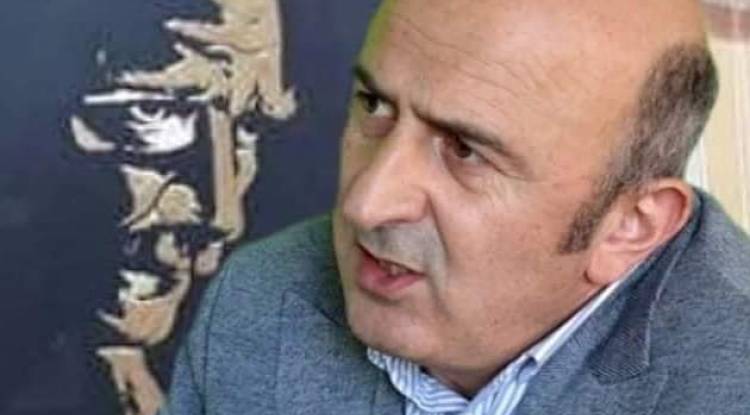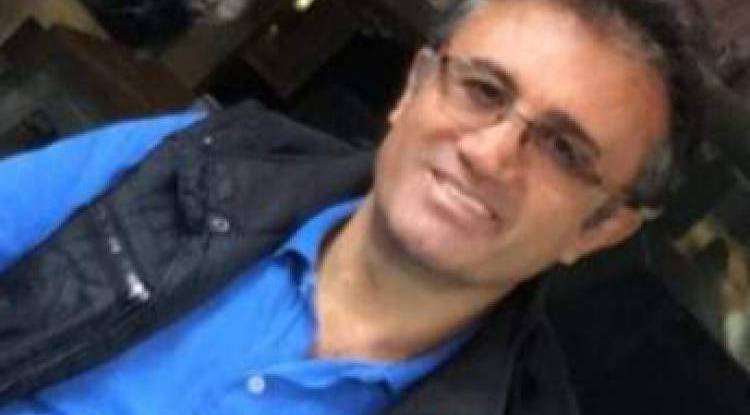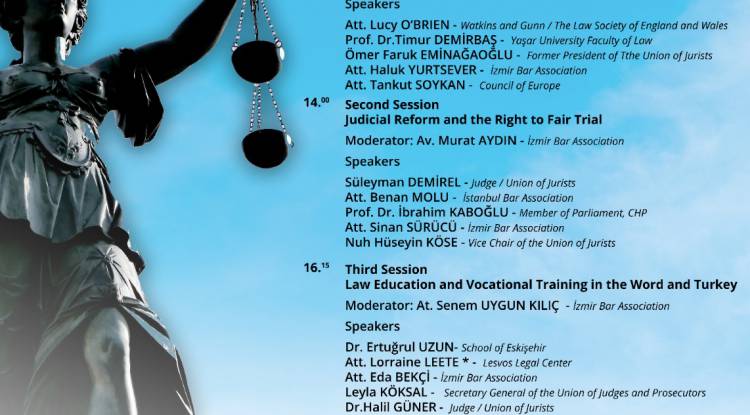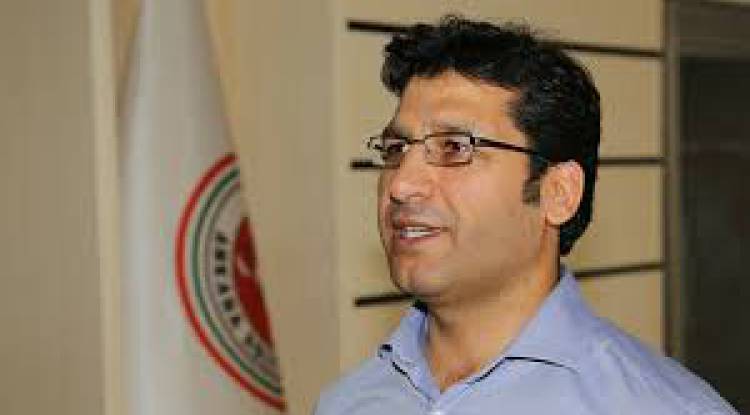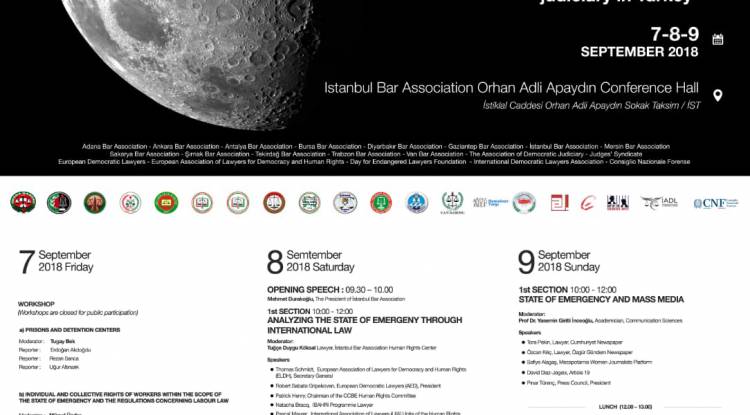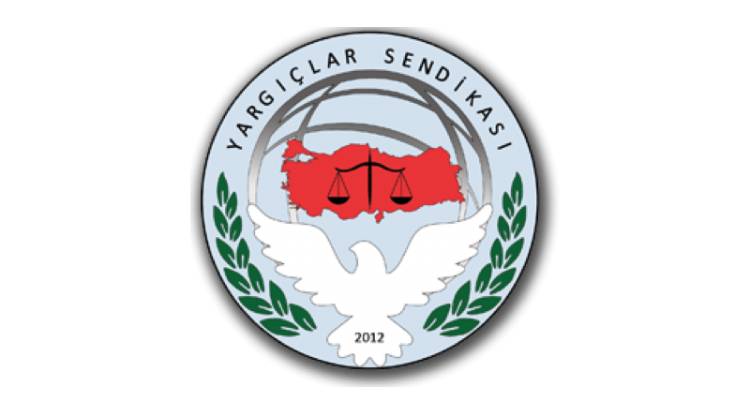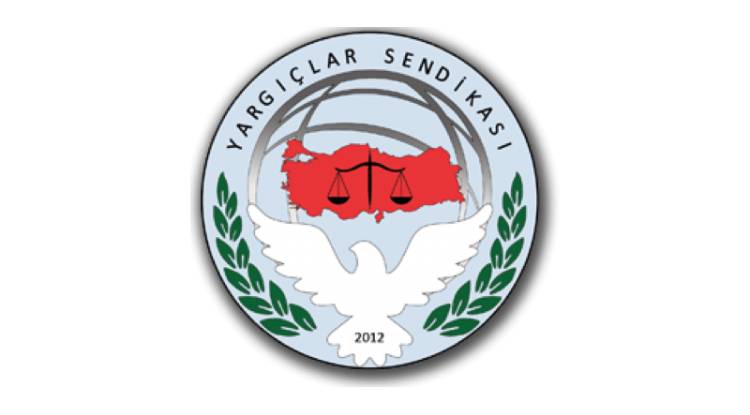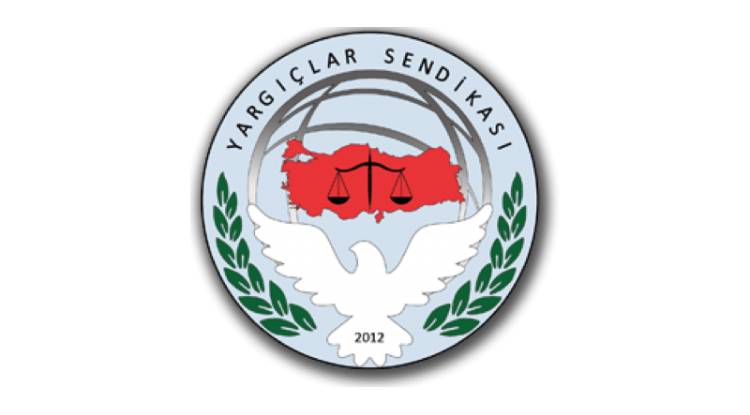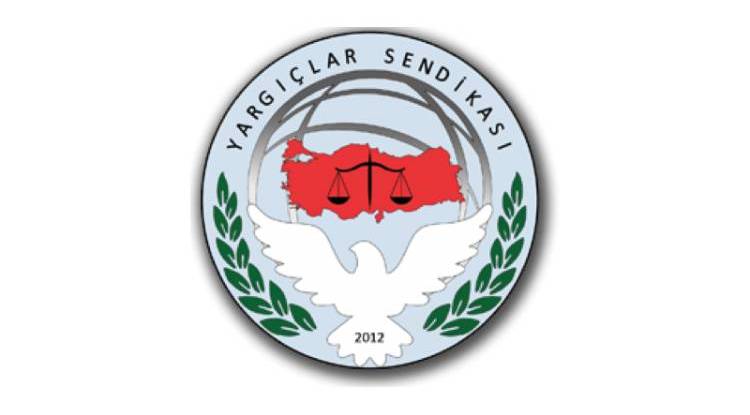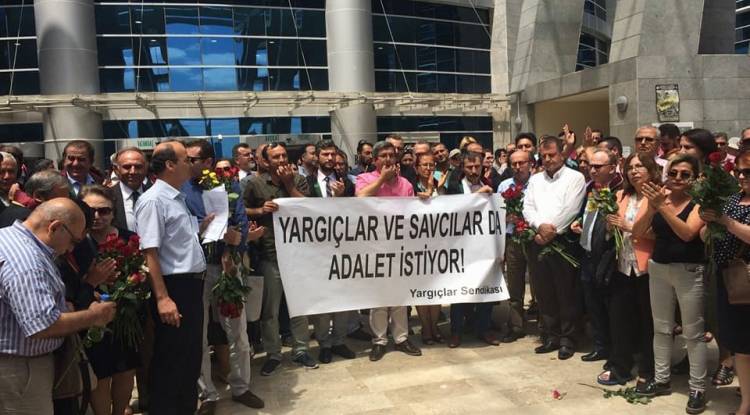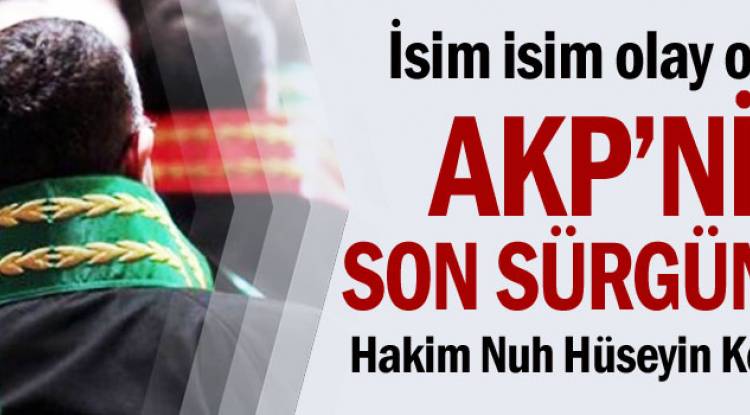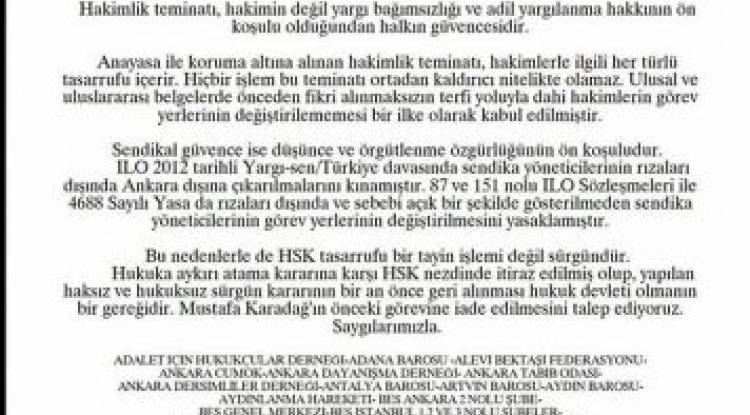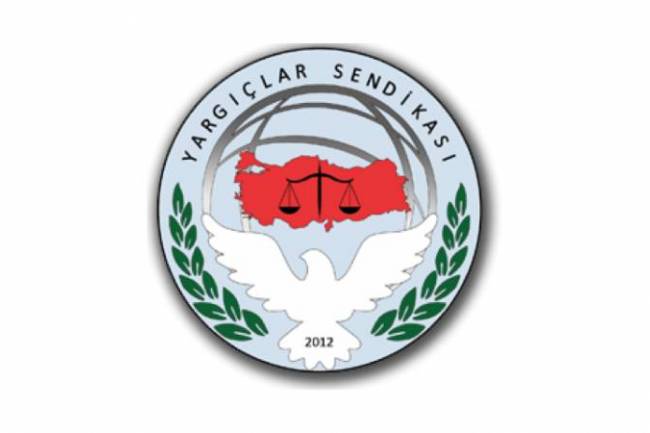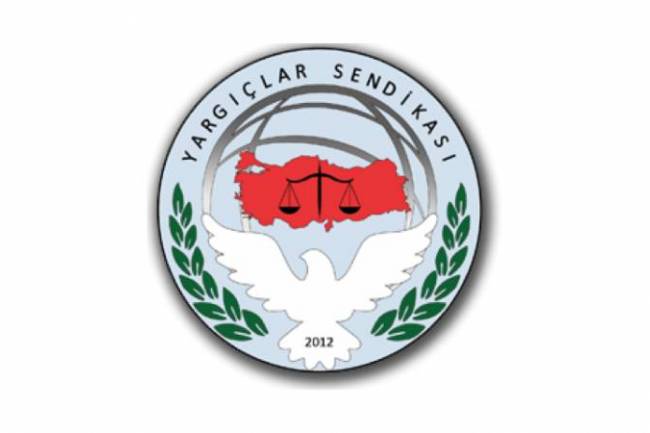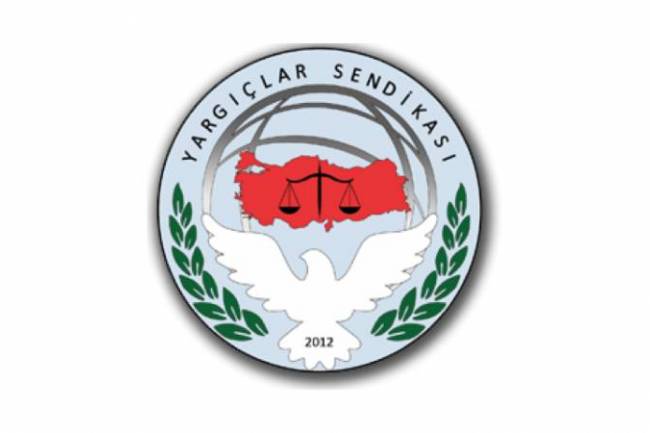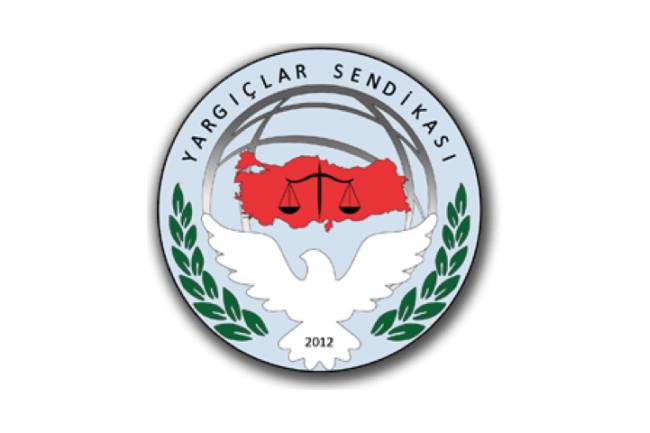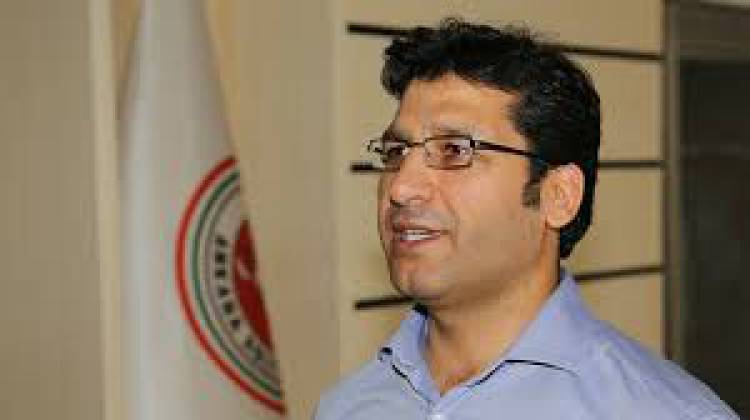
The announcement of the Board of Judicial Union about the judgement of the President of Yar-Sav
The announcement of the Board of Judicial Union about the judgement of the President of Yar-Sav: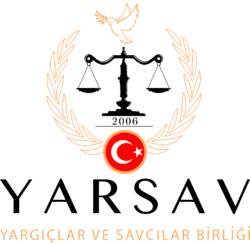
Yar-sav President Murat Arslan was convicted by the Ankara 25th High Criminal Court after being tried for membership of a terrorist organisation. Due to the unlawful acts and decisions made against him during the trial and the prejudiced and fictitious facts created about him by certain groups, the judgement was unlawful and unfair.
Following long-lasting smear campaigns against Yar-sav that was shut down by the government, using Murat Arslan trial as an opportunity, Yar-Sav and its acts were indirectly put on trial and Yar-Sav was convicted. Some of the irregularities that took place during the trial are:
- Requests made by the defendant’s lawyers to throw light on issues relating to the
trial and to gather evidence that could be in favour of the defendant were constantly rejected.
Amongst the requests rejected, given the fact that Murat Arslan did not have a program called by-lock , was the request for evidence from base station signal records and the request to gather the documented conversations of some FETO members on whose mobile phone the nickname of Murat Arslan was allegedly found.
-In violation of Article 181 of the Turkish Procedural Penal Code, (TPPC) which states that in cases where witnesses or experts are heard by rogatory judges, the defendants or their counsels must be pre-informed, an anonymous witness was heard without the notification of the defendant and his counsel. This hearing was carried out by one judge although the case itself was being tried by a High criminal court consisting of three judges and one prosecutor. The defendant and his counsel were deprived of their right to question the witness. This is an unlawful limitation of the right of defence.
-Some of the witnesses who were brought to the court by the defence and who had worked as board members of Yar-Sav alongside the defendant, were not allowed by the court to give their testimony with no explanation, whereas witnesses chosen by the court were heard. This attitude is incomprehensible. This practice is clearly in violation of Article 178 of TPPC.
Requests for release by defence counsel were returned by the Court President without consultation with the public prosecutor and the other two judges of the court. Moreover, in violation of Article 178, an expert who was brought to the last session was not allowed to give his testimony without explanation. This expert had prepared a report outside the trial, in which he ad stated that the existence of by-lock cannot be confirmed by the evidence to hand.
-In the last session of the trial, upon the refusal of all requests by defence counsel, the defence requested the recusation of all judges of the court. The public prosecutor was of the view that this request should be decided upon by the relevant court. Article 27 (1)-b) states that if a judge is a member of a High criminal court and there is more than one chamber of the High criminal court, the chamber whose number follows the one about whose judge the request of recusation has been made is authorised to make a decision on the matter. Despite the said article and the confirmatory opinion of the public prosecutor, the Court rejected the request, thus causing a major violation of procedural requirements. After this, the defence counsels notified the court of their resignation and left the sessional room. The defendant, being left without counsel, requested further counsel from the court but this request was ignored and the court made its judgement.
- Given all these violations, the unlawful acts and the prejudiced attitude of the court, the trial as conducted excluded the ‘fair trial’ requirements enshrined in the European Human Rights Convention, the Constitution and the TPPC and resulted in an unfair and unlawful decision.
In conclusion, the first judicial association Yar-Sav was judged by using Murat Arslan trial as an opportunity. The judgement rendered is unacceptable and we hope the conviction will be overturned in the next phase of the criminal proceedings.
This announcement is made respectfully to the public.
The Board of Judicial Union.
The announcement of the Board of Judicial Union about the judgement of the President of Yar-Sav:
Yar-sav President Murat Arslan was convicted by the Ankara 25th High Criminal Court after being tried for membership of a terrorist organisation. Due to the unlawful acts and decisions made against him during the trial and the prejudiced and fictitious facts created about him by certain groups, the judgement was unlawful and unfair.
Following long-lasting smear campaigns against Yar-sav that was shut down by the government, using Murat Arslan trial as an opportunity, Yar-Sav and its acts were indirectly put on trial and Yar-Sav was convicted. Some of the irregularities that took place during the trial are:
- Requests made by the defendant’s lawyers to throw light on issues relating to the
trial and to gather evidence that could be in favour of the defendant were constantly rejected.
Amongst the requests rejected, given the fact that Murat Arslan did not have a program called by-lock , was the request for evidence from base station signal records and the request to gather the documented conversations of some FETO members on whose mobile phone the nickname of Murat Arslan was allegedly found.
-In violation of Article 181 of the Turkish Procedural Penal Code, (TPPC) which states that in cases where witnesses or experts are heard by rogatory judges, the defendants or their counsels must be pre-informed, an anonymous witness was heard without the notification of the defendant and his counsel. This hearing was carried out by one judge although the case itself was being tried by a High criminal court consisting of three judges and one prosecutor. The defendant and his counsel were deprived of their right to question the witness. This is an unlawful limitation of the right of defence.
-Some of the witnesses who were brought to the court by the defence and who had worked as board members of Yar-Sav alongside the defendant, were not allowed by the court to give their testimony with no explanation, whereas witnesses chosen by the court were heard. This attitude is incomprehensible. This practice is clearly in violation of Article 178 of TPPC.
Requests for release by defence counsel were returned by the Court President without consultation with the public prosecutor and the other two judges of the court. Moreover, in violation of Article 178, an expert who was brought to the last session was not allowed to give his testimony without explanation. This expert had prepared a report outside the trial, in which he ad stated that the existence of by-lock cannot be confirmed by the evidence to hand.
-In the last session of the trial, upon the refusal of all requests by defence counsel, the defence requested the recusation of all judges of the court. The public prosecutor was of the view that this request should be decided upon by the relevant court. Article 27 (1)-b) states that if a judge is a member of a High criminal court and there is more than one chamber of the High criminal court, the chamber whose number follows the one about whose judge the request of recusation has been made is authorised to make a decision on the matter. Despite the said article and the confirmatory opinion of the public prosecutor, the Court rejected the request, thus causing a major violation of procedural requirements. After this, the defence counsels notified the court of their resignation and left the sessional room. The defendant, being left without counsel, requested further counsel from the court but this request was ignored and the court made its judgement.
- Given all these violations, the unlawful acts and the prejudiced attitude of the court, the trial as conducted excluded the ‘fair trial’ requirements enshrined in the European Human Rights Convention, the Constitution and the TPPC and resulted in an unfair and unlawful decision.
In conclusion, the first judicial association Yar-Sav was judged by using Murat Arslan trial as an opportunity. The judgement rendered is unacceptable and we hope the conviction will be overturned in the next phase of the criminal proceedings.
This announcement is made respectfully to the public.
The Board of Judicial Union.
 admin
admin 